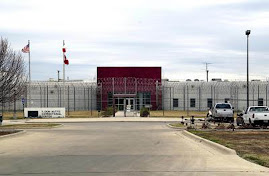Read full article by ANABELLE GARAY Associated Press Writer
TAYLOR, Texas — Pastel-colored walls adorned with cartoon characters, ceramic instead of steel toilets in cells and other upgrades have softened the inside of a former prison where dozens of immigrant children and their families are detained.
U.S. Immigration and Customs Enforcement officials conducted a media tour Tuesday at the T. Don Hutto Family Residential Center in Taylor say the facility has become more family friendly thanks to more than 100 modifications. The changes were required under a settlement reached in a lawsuit alleging children were held in prison-like conditions.
ICE officials say the changes would have been implemented even without the lawsuit, and added that they continue to discuss more improvements to the facility where families live in small cells furnished with bunkbeds and a toilet.
"Everything that was included in that settlement was either done prior to the settlement, in progress during the settlement or contemplated prior to the settlement," said Gary Mead, ICE's acting director for detention and removal.
Advocates disagree and contend that public awareness, a report last year detailing conditions at Hutto and the lawsuit spurred ICE to action.
"Because they thought that it was OK," said Michelle Brane, director of the detention and asylum program at the Women's Commission for Refugee Women and Children. Improvements came "not until they really were forced to make the changes," Brane said.
When the facility first opened nearly two years ago, advocates say uniformed, handcuff-toting correctional officers called "counselors" threatened children with separation from their families. Children received only one hour of classroom instruction a day, lost weight and had limited access to health care, attorneys alleged.
ICE officials have denied that guards used threats or that healthcare was limited. The agency did say that the school day has been significantly expanded since Hutto opened.
ICE is considering opening more facilities to detain families around the country, making Hutto a sort of prototype, Mead said.
"I think we will continue to have family residential centers," Mead said. "In terms of the treatment that people receive here, this is clearly a model."








